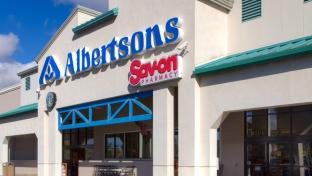Grocers Failing to Warn Shoppers About Recalls
Most major U.S. grocery chains need to do a better job of notifying customers about recalls, according to a new report from the U.S. Public Interest Research Group.
U.S. PIRG Education Fund’s Food Recall Failure: Will your supermarket warn you about hazardous food? scorecard gave a failing grade to 84% of the nation’s 26 largest supermarket chains. Chains receiving a failing grade include Aldi, Publix and Walmart.
Four grocery chains passed with a “C” grade: Target, Kroger, Harris Teeter and Smith’s. No chains earned an “A” or “B.”
“Supermarkets should be our best recall notification system, but instead, we found that shoppers must go on a nearly impossible scavenger hunt to learn if they’ve purchased contaminated food,” said U.S. PIRG Education Fund Consumer Watchdog Adam Garber. “Stores already use modern technology to track customers, place products, and target us with ads. There’s no reason why they can’t also keep us healthy.”
U.S. PIRG assessed supermarkets on publicly available information about whether they tell customers about the following: recall policies, in-store notification and direct customer notification. Findings include:
-
22 out of 26 stores failed to adequately inform the public about recall notification efforts, how to sign up for direct notifications, or where to find in-store postings. Only Harris Teeter, Kroger, Smith’s and Target received a passing grade.
-
58% of stores reported some program to directly notify consumers about recalls through email or phone. Of those 15 stores, only eight made it clear how customers could participate, how the system works, or what information is included in warnings.
-
Not a single store provided information online about whether recall notices are posted at customer service desks, checkout counters, or store shelves.
“Every store should have a robust notification program, but because notifications are difficult to find, we're largely in the dark about what happens,” said U.S. PIRG Education Fund Consumer Watchdog Associate Dylan Robb. “Stores might not be responsible for the recall, but they can make a difference. We look forward to seeing improved transparency about recall notification efforts -- and improved programs.”
FMI - The Food Industry Association maintains that retailers do an excellent job of managing recalls and maintaining consumer trust, noting that not every recall is related to foodborne illness.
“Will your supermarket warn you about hazardous food? Absolutely," Hilary Thesmar, chief food and product safety officer, and SVP of food safety for Arlington, Va.-based FMI, told Progressive Grocer. "The food supply chain works within the regulatory framework and acts quickly to remove recalled product from shelves and notify shoppers. This is the most fundamental service grocers provide to maintain the trust of their customers."
Thesmar said the greater food industry is effective at recall communications, particularly grocers at the end of the supply chain due to the number of recalls they manage with varying products and volume. "Importantly, we believe recalls are the final step of a food safety management program to effectively and efficiently remove potentially harmful products from commerce," she said.
In recent comments to the U.S. Food and Drug Administration (FDA), FMI addressed how food retailers respond to recalls with their supply chain partners. "How they communicate this information is largely based on feedback from shoppers," Thesmar noted.
According to FMI U.S. Grocery Shopper Trends 2019, digital communications methods in the form of email and text messages lead the way in how consumers prefer to hear about food recalls. "However, we recognize that communication preferences vary generationally and regionally," Thesmar said. "Therefore, retailers utilize multiple methods of communication depending on the circumstances to communicate recalls to their customer."
Thesmar said food retailers are "committed to communicating relevant recall information to customers wherever – and however – they shop.”







